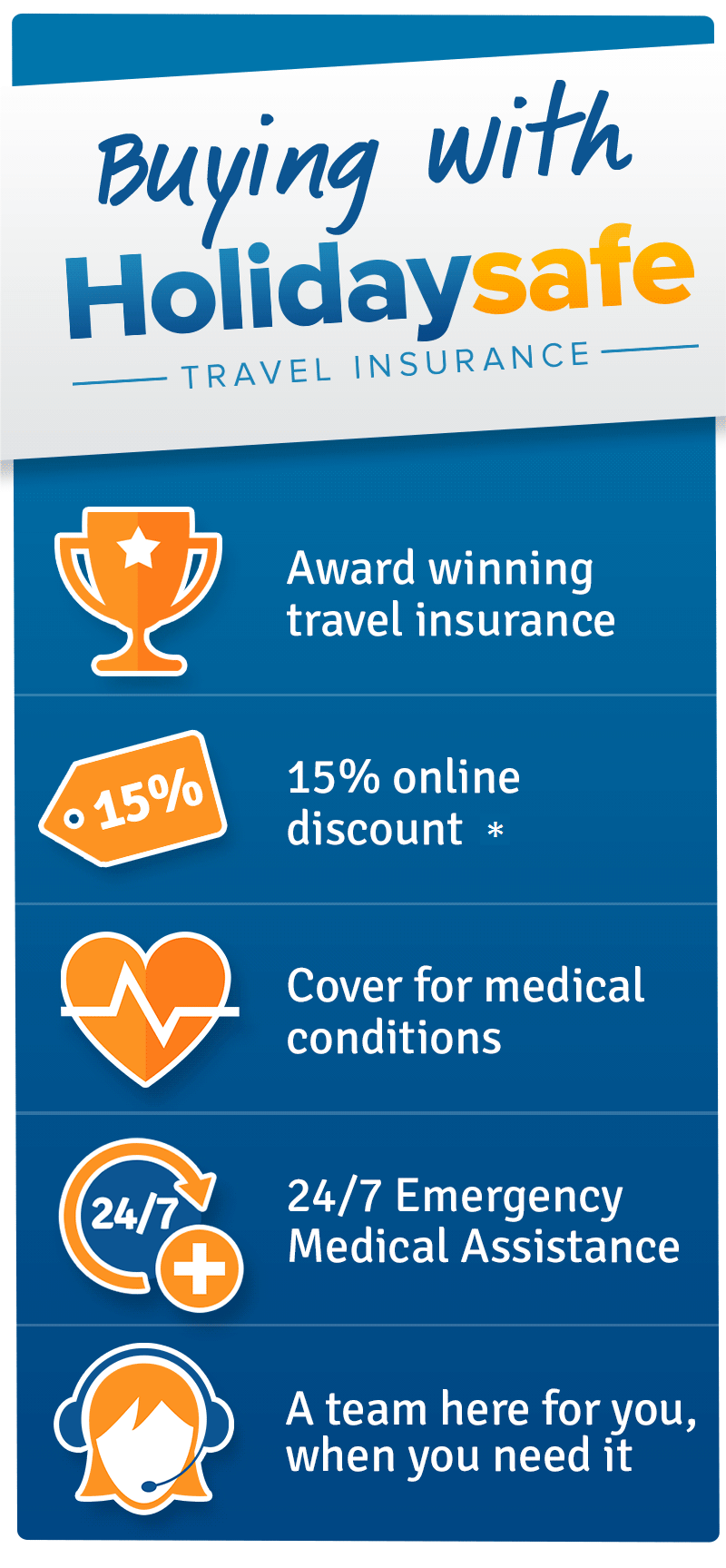Can I travel whilst pregnant?
Yes, our policies include emergency medical expenses cover for pregnancy and childbirth from week 0 to week 28 whilst you’re away. (24 weeks for multiple births) However, from the start of week 29 of the pregnancy, there is no cover for any claims relating to pregnancy.
Please note we will not cover denial of boarding by your carrier so you should check that you will be able to travel with the carrier/airline in advance as regulations vary from one carrier/airline to another.
Do I need to declare pregnancy?
Pregnancy is not a medical condition, therefore there is no need to declare it to us and it will be covered. However, there are certain aspects which need to be taken into account:
- Any conditions associated with your pregnancy, for example, high blood pressure; need to be declared to us to ensure that you’re properly covered.
- If you have a normal birth whilst away any time after 28 weeks this is not an emergency, and will not be covered as it could be reasonably anticipated.
What do I do if I need medical treatment?
If you need emergency medical treatment call an ambulance on 112 or using the local equivalent of 999, and then contact our 24-hour emergency assistance number. You need to contact the assistance team at the earliest opportunity, so we strongly suggest you put their telephone number into your mobile phone before you travel, just to make sure it is to hand if you need it.
How is a family defined?
We define a family as a policyholder and spouse or partner, who have been living together as a couple for at least six months, plus their dependent children who are living at home aged 0-17 years on the date of departure. Any dependent aged 18 or over will be considered an adult and will need an individual policy.
How is a couple defined?
We define a couple as a policyholder and spouse or partner, who have been living together as a couple at the same address for at least 6 months.
How is a child defined?
We define a child as anyone under 18 years of age on the date of departure, and dependent upon an adult insured under the same policy, otherwise they have to pay an adult premium.
If you have any other questions please feel free to contact our friendly and experienced Customer Service team, who will be more than happy to answer your queries.





